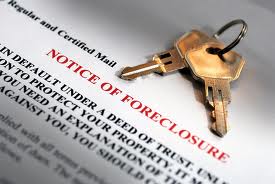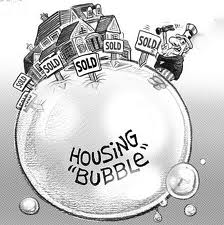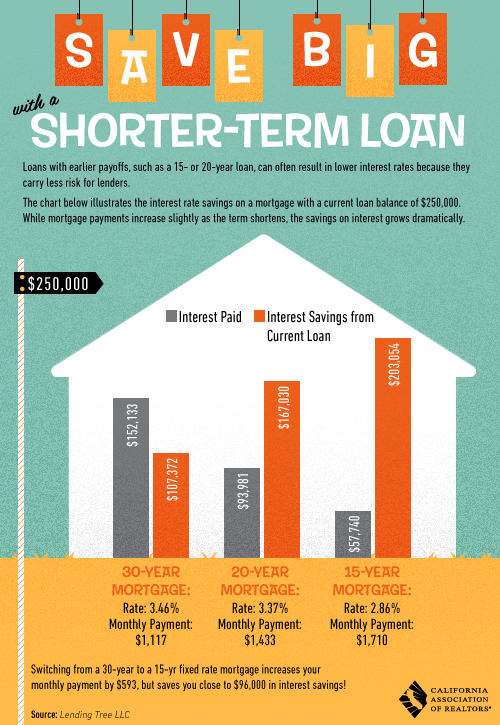
BLOG
Is There Anyway To Have My HUD Offer Considered Before Others?
Buying a HUD Home is not as difficult as you may think! I have helped many people purchase their 1st Home from HUD! Call me today for more details about the process! Laura.A.Key@gmail.com or Visit my website to sign up for FREE HUD Listings! http://www.KeyCaliforniaHomes.com
Owner occupants always have first priority; however, if there are not any bids after the 30th day then bidding is open to all bidders (investors). All offers are due by the bidding date and the HUD system generally picks the highest and best offer.
Los Angeles HUD homes, Buying A Hud Home, North Hollywood HUD homes, Westchester HUD Homes, Gardena HUD Homes, Northridge HUD Homes, Santa Clarita HUD Homes, Simi Valley HUD homes, Lemert HUD Homes, Compton HUD Homes, Lynwood HUD Homes, Hawthorne HUD Homes, Inglewood HUD Homes, Baldwin Hills HUD Homes, Playa del rey HUD homes, Marina del Rey HUD Homes, Santa Monica HUD homes, Lakewood HUD homes, Buying A HUD Home, Buying a Los Angeles HUD Home, HUD Trained Agent, HUD NAID agent
White House Rolls Out 3 Foreclosure Prevention Efforts
Even though the market has become of hot bed in these last few months. There are still homeowners struggling to keep their homes. Here are some new programs that may help. Are YOU facing foreclosure? Call me! Laura Key 310.866.8422
The Obama administration announced the extension or debut of three programs aimed at helping distressed home owners avoid foreclosure. The three initiatives are:
Increasing outreach in the Making Home Affordable Program: The U.S. Department of Treasury is partnering with NeighborWorks America as well as the National Foreclosure Mitigation Counseling program to increase support for struggling home owners who seek assistance through the Making Home Affordable Program, which includes the Home Affordable Modification Program (HAMP). HAMP reduces monthly payments by more than $540 each month, on average. “Through the new initiative, housing counseling agencies will help struggling home owners successfully complete and submit application documents to their mortgage company free-of-charge,” according to the White House blog.
Informing the unemployed about programs: The Department of Labor will be encouraging American Job Centers to inform unemployed home owners about federal foreclosure prevention options that are available to them. For example, there is unemployment forbearance through HAMP that allows qualifying home owners who are unemployed to reduce or suspend their mortgage payments for up to 12 months.
HUD’s new Housing Counseling Office: The Department of Housing and Urban Development has launched a Housing Counseling Office, which offers at-risk home owners free or low cost information about foreclosure prevention and loan modification programs. It also offers general information on buying or renting a home, handling foreclosures, and how to avoid scams. The office is made up of a network of 2,500 HUD-approved housing counseling agencies.
“While we are encouraged that the housing market is on the path to recovery, our job is far from finished,” according to the White House blog. “There are still many struggling home owners who need assistance. By connecting eligible home owners with existing foreclosure prevention programs, our new counseling initiatives will enable more borrowers to remain in their homes and go a long way in ensuring a brighter economic future for these families.”
Source: The White House Blog
Rising Student Loan Debt Keeps Buyers Out
There are simple solutions around this issue. Call me today to discuss your options! Laura Key 310.866.8422
Between 2004 and 2012, student loan balances nearly tripled, according to a new survey from the Federal Reserve Bank of New York. What’s more, one-third of student loan borrowers are delinquent on their debt, according to the Federal Reserve report. This will impact their credit rating and possibly keep them out of the mortgage market much longer.
"Short term, you see a decrease in the number of first-time home buyers," Brian Coester of Coester Valuation Management told CNBC. "You're going to see somebody who would have been able to afford a more expensive house maybe go for the lower version or the downgraded version."
Potential buyers with heavy student debt burden have been forced to rent or even move back in with their parents as they chip away at their debt.
"Long term it's going to really affect especially the upper end, because people aren't going to have the excess income to buy the jumbo property or buy that high end property," says Coester. "It' s going to affect home prices as a negative, as more of a cap, because it's really debt that they are servicing."
Source: “Student Debt Is Housing’s $1 Trillion Challenge,” CNBC.com (April 8, 2013)
Making an Offer On A HUD Home?
Buying a HUD Home is not as difficult as you may think! I have helped many people purchase their 1st Home from HUD! Call me today for more details about the process! Laura.A.Key@gmail.com or Visit my website to sign up for FREE HUD Listings! http://www.KeyCaliforniaHomes.com
Buyers will want to make offers based on ‘as-is’ appraisals determined by HUD. HUD will accept no offers that are lower than 50 percent of their appraisal. If you offer more than the appraisal price, you will be required pay the amount of the over-bid at closing, as your lender will base their loan amount on the appraised value of the home. Also, the process is a bit different than a regular offer on property. Your offer will be submitted online and government forms will be used to conduct the transaction.
Los Angeles HUD homes, Buying A Hud Home, North Hollywood HUD homes, Westchester HUD Homes, Gardena HUD Homes, Northridge HUD Homes, Santa Clarita HUD Homes, Simi Valley HUD homes, Lemert HUD Homes, Compton HUD Homes, Lynwood HUD Homes, Hawthorne HUD Homes, Inglewood HUD Homes, Baldwin Hills HUD Homes, Playa del rey HUD homes, Marina del Rey HUD Homes, Santa Monica HUD homes
Housing Shortage Will Dampen Spring Market
Buyers must be prepared more than ever! Do you have your PRE-APPROVAL in hand? It could mean the different of you getting your new home or renting for another year. Call me, let's discuss your options! Laura Key 310.866.8422
The housing recovery is progressing, but a shortage of homes on the market will limit the number of home sales this spring selling season, industry insiders say.
"If we don't see more people listing their properties, I don't think we will see the home sales volume increase that we are accustomed to seeing," Glenn Kelman, chief executive officer of Redfin told Reuters. "There are far more buyers than there are sellers on the market. We would have a huge boom spurred by low interest rates if there were more inventory on the market."
Still, the National Association of REALTORS® predicts existing-home sales will rise around 7 or 8 percent this spring compared to year ago levels.
In some areas where inventories are particularly constrained—like Washington, D.C., New York, and several California cities—homes are selling within hours of being placed on the market.
"The demand for properties is insane. The bidding wars that are going on, there is not enough inventory and it has become truly a seller's market again," says Neil Garfinkel, real estate attorney at Abrams Garfinkel Margolis Bergson in New York.
Source: “Analysis: Supply crunch to take steam out of home sales,” Reuters (April 3, 2013)
Economist Quashes Housing Bubble Rumors
I love what I do; however I have reservations about this report. I have had deep conversations with other agents and I firmly feel we are in a danger zone. Your thoughts? Laura Key 310.866.8422
Recently, rumblings of another housing bubble have been emerging, but one economist says with inventories expected to rise soon, the housing market is not at threat.
Rick Sharga, executive vice president with Carrington Mortgage Holdings, told a crowd at the REOMAC 2013 Summit & Expo in Dallas on Monday that the housing market should expect things to get worse before they start improving.
But “this is not the 2005 market,” he said. “We are not creating a bubble.”
Sharga says the lack of available home inventory is the reason why home prices are rising. New-home inventories are at their lowest level in more than 30 years, he said. “Very few markets are anywhere near where we were at the peak,” he said. The markets showing some “bubble-like tendencies” are housing markets that saw the biggest declines, he noted.
LPS Applied Analytics recently predicted that home prices could rise another 35 percent without affecting affordability.
Sharga predicts that by this time next year there will be too many homes for sale. Housing and foreclosure starts are expected to start rising within the next year.
Source: “Carrington’s Sharga: We Are Not Creating Another Housing Bubble,” HousingWire (April 8, 2013)
When Can I Bid on a HUD Home?
Buying a HUD Home is not as difficult as you may think! I have helped many people purchase their 1st Home from HUD! Call me today for more details about the process! Laura.A.Key@gmail.com or Visit my website to sign up for FREE HUD Listings! http://www.KeyCaliforniaHomes.com
Owner occupants can offer a bid on a HUD home during the first nine days. HUD will look at all bids on the 10th day and decide based on which offer gives them the highest net profit. If there are two or more bids at the same net to HUD the offers will go into a lottery and the bid will be awarded based on chance. After the 10th day if there aren’t any acceptable bids there will be an additional 20 days of bidding where bids are opened and reviewed daily for owner
Los Angeles HUD homes, Buying A Hud Home, North Hollywood HUD homes, Westchester HUD Homes, Gardena HUD Homes, Northridge HUD Homes, Santa Clarita HUD Homes, Simi Valley HUD homes, Lemert HUD Homes, Compton HUD Homes, Lynwood HUD Homes, Hawthorne HUD Homes, Inglewood HUD Homes, Baldwin Hills HUD Homes, Playa del rey HUD homes, Marina del Rey HUD Homes, Santa Monica HUD homes
Does Moving Up Make Sense?
Don't get caught up in the madness of the market. Deciding to sell is a personal decision, take everything into account. I am here to assist! Laura Key 310.866.8422
These questions will help you decide whether you’re ready for a home that’s larger or in a more desirable location. If you answer yes to most of the questions, it’s a sign that you may be ready to move.
- Have you built substantial equity in your current home? Look at your annual mortgage statement or call your lender to find out. Usually, you don’t build up much equity in the first few years of your mortgage, as monthly payments are mostly interest, but if you’ve owned your home for five or more years, you may have significant, unrealized gains.
- Has your income or financial situation improved? If you’re making more money, you may be able to afford higher mortgage payments and cover the costs of moving.
- Have you outgrown your neighborhood? The neighborhood you pick for your first home might not be the same neighborhood you want to settle down in for good. For example, you may have realized that you’d like to be closer to your job or live in a better school district.
- Are there reasons why you can’t remodel or add on? Sometimes you can create a bigger home by adding a new room or building up. But if your property isn’t large enough, your municipality doesn’t allow it, or you’re simply not interested in remodeling, then moving to a bigger home may be your best option.
- Are you comfortable moving in the current housing market? If your market is hot, your home may sell quickly and for top dollar, but the home you buy also will be more expensive. If your market is slow, finding a buyer may take longer, but you’ll have more selection and better pricing as you seek your new home.
- Are interest rates attractive? A low rate not only helps you buy a larger home, but also makes it easier to find a buyer.
Home Prices Pick Up at Fastest Pace in 7 Years
Sellers, if you were on the fence about selling your home, this should help you make the right decision! Call me for a FREE CMA on your home! Laura Key 310.866.8422
Home prices nationwide, which includes distressed sales, soared 10.2 percent year-over-year, according to CoreLogic’s February report. It’s the largest year-over-year increase in home prices since March 2006. It also marks the twelfth consecutive monthly increase in national home prices, according to CoreLogic’s report.
When excluding distressed sales, home prices rose 10.1 percent year-over-year in February, according to CoreLogic.
“Nationally, home prices improved at the best rate since mid-2006, marking a full year of annual increases and underscoring the ongoing strengthening of market fundamentals,” says Anand Nallathambi, president and CEO of CoreLogic.
CoreLogic predicts that home prices -- excluding distressed sales -- will likely rise 11.4 percent year-over-year from March 2012.
“The rebound in prices is heavily driven by western states,” says Mark Fleming, CoreLogic’s chief economist. “Eight of the top ten highest appreciating large markets are in California, with Phoenix and Las Vegas rounding out the list.”
The five states with the highest price appreciation as of February 2013, according to CoreLogic, were:
- Nevada (+19.3%)
- Arizona (+18.6%)
- California (+15.3%)
- Hawaii (+14.6%)
- Idaho (+13.5%)
Source: CoreLogic
Can I View A HUD Home Before Bidding?
Buying a HUD Home is not as difficult as you may think! I have helped many people purchase their 1st Home from HUD! Call me today for more details about the process! Laura.A.Key@gmail.com or Visit my website to sign up for FREE HUD Listings! www.KeyCaliforniaHomes.com
Can I view a HUD home before bidding?
Sure you can! You must use a HUD registered agent! Properties can be viewed anytime during the bidding process. Just be ready with your loan pre-approval in hand in case you find your dream home. You would hate to miss out because you were not fully prepared!
In A Hot Market...Bid First...See House Later
The market is so hot right now it seems the only way to even have a chance at purchasing a home is to put your offer in a contingency to view and inspect the property. What are your thoughts on this process? Is this creating another false bubble? Laura.A.Key@gmail.com
As soon as it hit the market, the four-bedroom Sea Cliff home inspired a bidding war, with the top two prospective buyers both offering well above the multimillion-dollar listing price, in cash.
In today's fevered real estate market, that's no longer unusual.
But there was a twist: Both bidders were located in China, and both made their big-bucks offers without ever setting foot in the house. One of them ended up buying the house for $3.1 million, substantially above its $2.8 million list price.
"At first, I was really, really surprised and kind of suspicious," said Nina Hatvany of Pacific Union, the listing agent. "I was concerned that they hadn't seen the property. After all, they might not like it when they saw it."
But since both offers looked serious and included proof of funds, "I said to the sellers, 'This seems like a new buyer profile. You might as well take it.' "
Buying homes sight unseen is a small but growing trend in the Bay Area, fueled by the over-competitive market and burgeoning interest by international buyers - and enabled by technological advances.
Buyers might make offers without seeing a house for several reasons: They live elsewhere or are away for business or personal reasons; they had scheduling conflicts and couldn't visit before bids were due; they're investors accustomed to buying just based on property characteristics; or they're taking a scattershot approach of making lots of offers and seeing which get accepted.
Not completely blind
Today's array of tech tools means they're never truly buying in the dark, however. Besides extensive photos and video tours of homes for sale, plenty of websites offer the chance to learn about neighborhoods and schools, and research comparable sales.
Often, those who bid sight unseen have a chance to tour the house during escrow and can still back out. But sometimes, as in the Sea Cliff case, they're willing to pay huge amounts based on photos, videos and their agent's recommendation. (The winning Sea Cliff bidder also had a family member visit.)
Professional investor Paul Livson of Danville has been buying and selling properties for 30 years, both for rental income and to resell. Bidding before visiting is a tactic he and others increasingly adopt, he said.
"Lots of people are doing it now because they know they need to get their offer in quickly," he said. "The market conditions are such that if you wait to see it, if it's any kind of decent deal, there are already five to 10 offers on their way, and yours will be at the back of the pack. I need to be at the front of the pack."
And while he bids blind, he never buys blind.
"The risk is limited because you have an inspection period, so there's always an opportunity to see it and walk away" if it's not up to snuff, he said.
Still, there can be surprises. He's now buying a Pleasanton condo for $279,000. When he first saw the unit - after his offer was accepted - some issues surfaced: cigarette odors, marred floors, outdated bathrooms. Since it's a short sale, in which a bank has final say, it will be difficult to negotiate the price down based on the unit needing work, he said.
But he won't walk away. "With market conditions the way they are, it's still a good value for me," he said.
Riskier deals
Some sales, such as courthouse auctions that are the final stage in the foreclosure process, don't offer a chance to see properties in advance, nor is there an inspection period. While many investors bid at those auctions, "that's much more risky to me," Livson said. "I don't like to buy without having at least a day or two to inspect it. You could have a property that looks great on the outside but has $50,000 worth of termite damage.
His agent,said she's increasingly representing investors who want to bid sight unseen for efficiency, and she has created a "buyer concierge" program in response. "We hunt the properties for them," she said.
Some agents worry that such bidders muddy the waters.
"I am concerned about buyers feeling that this is a viable option in competition," said Bebe McRae of the Grubb Co., who has sold some properties to people who bid blind. "I heard seven offers yesterday on (a property) and the deciding factor for the sellers in choosing the winner was all about the confidence they felt in the buyers being able and willing to close successfully. The buyers went to the property on several occasions and also did their inspections prior to writing the offers."
People who have made the leap of faith to bid blind - especially those planning to live in the home - said having a knowledgeable real estate agent is a big plus.
Fernando Filippelli was overseas for business reasons when a Berkeley home came on the market, in a neighborhood he knew he liked.
"I had four different friends visit the property for me. One of them is an architect," he said in an e-mail. "This, plus the fact that (my agent) provided me all types of info, made me feel comfortable to put a bid on the house."
Inspection by FaceTime
Friends and relatives thought Adam Chang and Gwen Liu were crazy when the first-time home buyers made an offer on a Kensington house while they were in Taiwan, visiting sick relatives. Chang had never seen the house in person, although Liu had.
"We did the home inspection over FaceTime, Apple's video-chatting service," Chang said. "Our agent, Mark Biggins (of Redfin), had an iPhone, I had an iPad. I could see how high the ceilings really were. If they said a floor was sloping slightly, I could get a sense that it wasn't that bad. They took me down into the crawlspace. For being halfway around the world, it was great to be able to be virtually present."
The couple returned to the United States a few days before they needed to lift the inspection contingences.
"I was able to make sure everything was copacetic; it was better than I expected," he said. "It was all about taking that leap of faith."
Source: Carolyn Said is a San Francisco Chronicle staff writer.
Study: Buyers Can Afford Bigger House If It's New
Good News on the Home Front! Ready to Buy! Let's do this together! Laura Key 310.866.8422
The National Association of Home Builders says its new study shows that home buyers can buy a more expensive, newer house and still have the same operating costs as owning an older existing home.
NAHB examined data from the Census Bureau and Department of Housing and Urban Development’s 2011 American Housing Survey to determine how utility, maintenance, property tax, and insurance costs vary depending on the age of a home.
Houses built prior to 1960 have average maintenance costs of $564 per year. On the other hand, homes built after 2008 have average maintenance costs less than half that — $241, according to the study.
For homes built prior to 1960, operating costs average nearly 5 percent of the home’s value while the average was less than 3 percent for homes built after 2008, the NAHB study found.
The study also took into account the first year after-tax cost of owning a home by its age, examining the purchase price, mortgage payments, annual operating costs, and income tax savings. “A buyer can afford to pay 23 percent more for a new house than for one built prior to 1960 and still maintain the same amount of first-year annual costs,” according to NAHB.
New houses tend to cost more than existing homes, so the mortgage payments will likely be higher — but the lower operating costs of a newer home will give buyers annual costs that could be about equal if they purchase a lower priced, older home with a smaller mortgage payment but higher operating costs, NAHB says.
"Home buyers need to look beyond the initial sales price when considering whether to buy new construction or an existing home," says NAHB Chairman Rick Judson. "They will find that with the higher costs of operating an older home, they can often afford to spend more to buy a new home and still have annual operating costs that fit their budget."
Source: National Association of Home Builders
Market Chips Away at Foreclosure Inventory
Come and stake your claim in sunny California! Laura Key 310.866.8422
The number of nationwide completed foreclosures fell 19 percent year-over-year, according to the latest report by CoreLogic, reflecting February data. There were 54,000 completed foreclosures in the country in February, the lowest level since September 2007.
Still, foreclosures are elevated by historical standards. In a more balanced market, completed foreclosures tend to average about 21,000 per month — less than half where they are at today.
As of February, about 1.2 million homes were in some state of foreclosure. The nation’s foreclosure inventory has fallen 21 percent in the past year, according to CoreLogic. February marked the 16th consecutive month in which the foreclosure inventory has fallen.
“We continue to see a declining trend in foreclosure activity, with major markets leading the way,” says Anand Nallathambi, president and CEO of CoreLogic. “The drop in delinquencies and foreclosure starts will help support a resurgence in the home-purchase market this year and next.”
The five states with the highest number of foreclosures for the past year, according to CoreLogic’s February data, were:
- Florida
- California
- Michigan
- Texas
- Georgia
These states accounted for nearly half of all completed foreclosures nationwide over the past year.
On the other hand, the states with the lowest number of completed foreclosures were:
- District of Columbia
- Hawaii
- North Dakota
- Maine
- West Virginia
Source: “CoreLogic Reports 54,000 Completed Foreclosures in February,” RISMedia (April 1, 2013) and CoreLogic
Americans Showing More Desire to Buy
Buy land...they are not making it anymore! Words ring true! Laura Key 310.866.8422
The percentage of U.S. residents who say owning a home is an essential part of the American dream has hit a three-year high, reaching 79 percent, according to the CNBC-All-America Economic Survey. What’s more, the number of Americans who say it is better to own than rent grew by four points to 69 percent, according to the survey.
More Americans also believe owning a home is a better long-term investment than stocks.
“The housing numbers are all heading in the right direction,” reports Diana Olick for CNBC. “Home prices up, foreclosures down and, perhaps the most important, consumer confidence in housing is swelling.”
Still, first-time home buyers will be the “wild card” in the spring-summer home buying season, says Thomas Popik, research director for Campbell Surveys. “We see strong first-time homebuyer traffic, but it’s still not clear that the traffic will translate into increased purchases because first-time home buyers are dependent on low downpayment financing, such as FHA mortgages.”
Source: “People Are Becoming More and More Confident in Housing Market,” CNBC (April 1, 2013)
Big Predictions for Housing for Next 2 Years
Finally some GOOD news on the Real Estate front! Regardless of what the news says...Real Estate is either UP or DOWN...either way it's a good investment! Call me to increase your worth! Laura Key 310.866.8422
Home sales are projected to post some big gains in the next two years, according to Fannie Mae’s latest monthly economic outlook.
Fannie Mae economists predict that existing-home sales will rise by 10.5 percent this year, and by 6.2 percent in 2014. The economists made even bolder projections for new single-family home sales -- growing 15.1 percent this year and 44.1 percent in 2014.
"We expect home prices to firm further amid a durable housing recovery, continuing to boost household net worth, gradually diminishing the population of underwater borrowers, and reducing incentive for strategic defaults," according to Fannie Mae’s report.
Fannie Mae projects that mortgage rates will stay low by historical averages this year, but the 30-year fixed-rate mortgage will rise from an average of 3.5 percent during the first quarter to an average of 4 percent during the final three months of 2013. During the fourth quarter of 2014, mortgage rates are projected to tick up to a 4.5 percent average.
Mortgage applications for purchases are projected to increase by 16.8 percent this year and by 17.1 percent in 2014. However, a decline in applications for refinancings will likely cause mortgage originations to be down 14.5 percent this year and by 31.4 percent in 2014, Fannie economists predict.
Source: “Fannie Mae sees housing upturn as 'intact',” Inman News (March 28, 2013)
Come "like" my Facebook Fanpage! www.Facebook.com/RealtyGoddess
Are First-Time Buyers Being Shut Out?
Speaking from the trenches, I can honestly say it's hard to find buyers home right now. There are multiple offers and investors who offer in cash! Yet, it's not impossible! Call me today for more info and insight on what you may be facing as a buyer! Laura Key 310.866.8422
Across the country, first-time home buyers have been putting in offers on homes, but many of them keep losing out.
One working mother says she’s put in 30 offers on homes in the $100,000 range in the Atlanta area, bidding $2,500 to $3,000 above the asking price, but each time she’s been outbid. “We have to be on top of the game and be able to drop everything and check out a house or it will be gone,” says another couple in Alexandria, Va.
Tight housing inventories are playing a role. For example, in Boston home listings are down 57 percent and in Atlanta area home listings have dropped nearly 40 percent in the past year.
Also, “investors have been pushing home prices higher faster than expected,” Diana Olick reports for NBC. “But the higher prices get, the more investors may get out, because they won’t be able to find such great bargains any more. That in turn will let regular buyers back in, even if they do have to pay a little more to own.”
Source: “First-time Buyers Struggle as Home Prices Rise,” NBC (March 26, 2013)
Search SoCal homes for free from my Facebook page! www.Facebook.com/RealtyGoddess
5 Things You Forgot to Clean in Your Bathroom
Your bathroom, one of the rooms you clean most, hides areas that rarely see a scrub brush. It’s time to tackle these 5 nasty spots you probably forgot.
But we presume you or someone else regularly swishes out the toilets, wipes out the tubs and sinks, and mops your bathroom flooring.
But you may be missing some critical areas. With the help of Kristi Mailloux, president ofMolly Maid, we’ve compiled a list of 5 bathroom spots home owners often forget to clean:
1. Showerheads: A warm white vinegar bath will get rid of mineral deposits, making yourlow-flow shower head flow even lower. Let the showerhead soak for about 20 minutes, then poke a paperclip into shower head holes still clogged. Scrub with an old toothbrush, then rinse and repeat if necessary.
2. Toilet bases: Mildew can grow on the caulking around the base of your toilet. Spray with white vinegar or disinfecting household cleaner, then scrub with a hard-bristled brush. Dry thoroughly.
3. Shower curtains: Clean soap scum and mildew from plastic shower curtains by tossing them into your washer on the gentle and cold (never hot!) water cycle, with detergent and ½ cup vinegar. If mildew is present, add ½ cup of bleach instead of vinegar. Toss a couple of large towels into the machine to act as scrubbers. Hang curtains back on your shower curtain rod, spread them out, and let them drip-dry. If you turn on the bathroom fan, they’ll dry faster.
4. Drains: We don’t usually pay much attention to drains until they’re clogged. But all year your hair, toothpaste, shampoo, and conditioner are building up in sink and tub drains. Remove the stopper — unscrew the shower drain — and clear away obvious gunk, like hair and soap. Soak the drain in vinegar to clear away mineral deposits. Then, pour boiling water, or a mixture of ½ cup white vinegar and ½ cup baking soda, down the drain, which will bubble away crud sticking to pipes.
5. Medicine cabinet: Throw out prescription and over-the-counter drugs you no longer need or want. But don’t dump them down the drain, where they become part of the watershed, or into the trash, where anyone can fetch them out. Instead, take them to a local collection site, often at police or fire stations. Or check U.S. Drug Enforcement Administration’s National Take Back Initiative’s website for dates and sites for their next collection.
Bonus tip: Just for the fun of it, launder those powder room towels you won’t let anyone use. And be sure to clean out your dryer’s lint filter when you’re finished.
Source: houselogic.com written by Lisa Kaplan Gordon Published March 30, 2012
Selling your home is a big decision! Make sure you have someone who can help you get the most value out of your home! Call me today at 310.866.8422 Laura Key
Buying a House at Foreclosure Auction is Risky Business
You can buy a home at a significant discount at a foreclosure auction, but you’ll face a host of challenges. Don’t get burned; be solutions-ready.
Start by understanding the foreclosure auction rules for your area. State and local governments set their own rules for such factors as:
- Bidding process
- Amount of deposit
- Where the auction is held
- Whether the home owners can get their properties back after the sale
You can learn about the process in your area by talking to officials at your county tax department or to a REALTOR®.
Although foreclosure auctions follow local rules, there are some universal challenges you’ll face no matter where you shop for foreclosed properties. Here’s how to solve them.
Solutions to 6 common foreclosure auction challenges
1. Challenge: Getting reliable information about foreclosure sales. Many companies charge fees to send you lists of foreclosures that may not be current, or sell expensive foreclosure-buying “systems” that promise to teach you how to make millions in real estate.
Solution: Most foreclosure sales are still announced in local newspapers. And you can get accurate information about buying foreclosures from reliable book publishers:
Foreclosure Investing For Dummies (For Dummies, 2007)
Keys To Buying Foreclosed and Bargain Homes (Barron's Educational Series, 2008)
2. Challenge: You can’t get inside the property before the auction to inspect it forstructural problems and repairs. Many foreclosure auction properties are in bad shape because the owners couldn’t afford the upkeep. And sometimes angry home owners purposely damage the property to punish the foreclosing lender.
Solution: Walk around the home to check its exterior condition. If it’s vacant, look through the windows. Ask the neighbors what they know about the property. If it was a rental, check the inspection records on file with the local government.
You can safely assume there’s something wrong with any house sold at a foreclosure auction, so cover yourself by bidding no more than 70% of the home's market value.
3. Challenge: You need to figure out the market value of the house to prepare your bid. Some foreclosure auction announcements include information about the size of the original mortgage. That’s not how much the house is worth or even what the owners owe now. If the current owners bought at the top of the market, their mortgage may be more than the home is worth in today’s market and they could owe even more if there’s a second mortgage on the house.
Solution: Commission your real estate agent to do a broker’s price opinion (BPO) on the home you want to bid on. The BPO will show you comparable sales, telling you what similar, nearby homes that weren’t foreclosure sales have recently sold for.
Bid well below those comparable sales to leave yourself room to pay for repairs and unexpected problems. Ask the agency that runs the auction how to find winning bid amounts from recent auctions. Use that information to guide your current bid, too. A look at local tax and assessment records will tell you more about previous and current auction properties, like square footage and lot size.
4. Challenge: You don’t know if there are liens on the home. Some auctions don’t give you clean title to the property, meaning liens from the federal government or other entities may not be removed during the foreclosure auction process. You’d have to pay off those liens if you won the property.
Solution: Focus your efforts on two or three homes in desirable locations. To find out about any liens, pay a real estate attorney to run a title search on each property and issue a commitment to insure the title after purchase. Ask how the policy treats liens filed between the time of the search and the time you close.
A less-expensive option: Hire an independent title search professional called an abstracteror an online company. Both search options should be under $200, title insurance costs vary by state.
5. Challenge: You have to pay cash and pay it quickly. Most auctions require bidders to come up with the full purchase price in cash within 30 days.
Solution: Don’t count on getting a mortgage that fast. Look for other sources of cash that make financial sense for you.
- Take out a home equity line of credit or do a cash-out refinance.
- Tap retirement accounts, provided it makes sense for you from a tax perspective.
- Work with other investors to fund a partnership to invest in foreclosed homes.
6. Challenge: You’re in love with a house that you’re aware is headed to foreclosure, but you’re afraid to bid on it at the foreclosure auction because you know nothing about the process.
Solution #1: Contact the owners and offer to purchase the home as a short sale. That’s where the bank agrees to let the owners sell for less than what they owe on the mortgage.
Solution #2: You may be able to buy the house after the foreclosure sale. Foreclosure sales are run by a government agency (often the sheriff), which collects the money from the highest bidder and gives it to the bank to pay off the mortgage.
Banks will often bid at the sale to make sure someone doesn’t pay less than the house is worth (translation: not giving the bank enough money to satisfy the mortgage).
If the bank is the high bidder, it’ll take title to the house and put it up for sale. Then, buying the home is just like buying any other house. You can buy an owner’s title insurance policy so you know the house is free of liens; you can get a home inspection to check for needed repairs; and you’ll have plenty of time to line up your financing.
A real estate agent can alert you the day the bank puts the home on the market, so you can submit your purchase offer.
Since the bank pays the real estate agent’s fees, you likely won’t pay more than you'd have bid at the foreclosure auction to outbid the bank, and you’ll avoid most of the risks and unknowns of buying at the auction.
Ready to purchase your home! Start by taking one of my Free Home Buyer Seminars! Your will learn everything you need to know from Lending to Escrow! Call to schedule today! Laura Key 310.866.8422
Source: houselogic.com - Marcia Jedd, who covers a range of home and real estate issues, dreams of stumbling upon a foreclosure sale where a vacation lake cabin in northern Minnesota is being sold free and clear at a deep discount. Her bylines include many local and national publications, including FrontDoor.com, HGTVPro.com, Kitchen & Bath Ideas, and Professional Builder.
















